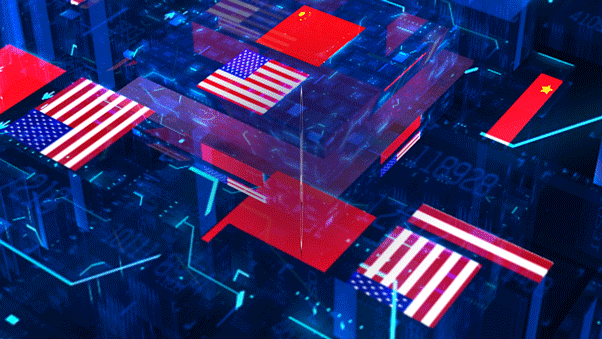Artificial Intelligence (AI) is rapidly transforming various aspects of modern society, including the battlefield. While AI holds immense potential for military advancements, its potential for misuse cannot be ignored. From stalking unsuspecting victims to fueling concerns about job displacement, AI's ethical implications and unintended consequences must be carefully considered.

In recent years, AI has emerged as a powerful tool for cybercriminals and malicious actors. One alarming application is its use in stalking unsuspecting individuals. AI-powered software can automate data collection, social media monitoring, and location tracking, enabling stalkers to gather detailed information about their targets. This technology can be used to intimidate, harass, and even physically harm victims, posing significant threats to their safety and well-being. Law enforcement agencies are faced with the challenge of keeping pace with these advancements and finding effective ways to protect victims from AI-facilitated stalking.
The battlefield is another area where AI is making a significant impact. Advanced AI systems can analyze vast amounts of data, predict enemy movements, and control autonomous weapons. While this technology has the potential to enhance military capabilities and reduce casualties, it also raises ethical concerns about the potential for autonomous warfare and the use of lethal force without human intervention. Governments and international organizations must establish clear guidelines and regulations on the use of AI in warfare to prevent unintended consequences and mitigate potential harm.

Despite the concerns, AI is also driving innovation in various fields. Researchers in the Netherlands have developed an AI platform that can recognize sarcasm in written text, a challenging task for computers. This technology has potential applications in customer service, social media moderation, and online communication.
The widespread adoption of AI has sparked concerns about job displacement, as automation and AI-powered systems take over tasks traditionally performed by humans. While some experts believe that AI will create new jobs and industries, others fear that it could lead to widespread unemployment. Addressing these concerns requires a proactive approach, including investments in education and training programs to equip workers with the skills needed in an AI-driven economy.

As nations seek to harness the power of AI, it is likely to become a guiding political issue in the years to come. The world may end up divided into tech alliances, with countries aligning themselves based on their level of AI development and expertise. This could potentially reshape international relations and create new geopolitical dynamics.
The rapid advancements in AI technology have brought into focus the urgent need to address its ethical implications. Governments, researchers, and industry leaders must work together to establish clear ethical frameworks and guidelines for the development and use of AI. This includes addressing issues of privacy, transparency, accountability, and the potential for bias and discrimination in AI algorithms.

AI presents both immense opportunities and challenges for society. While its applications in warfare, healthcare, and other fields hold great promise, its potential for misuse and unintended consequences must be carefully considered. Responsible development and use of AI, guided by ethical principles, will be crucial in shaping a future where AI serves humanity and enhances our lives.










